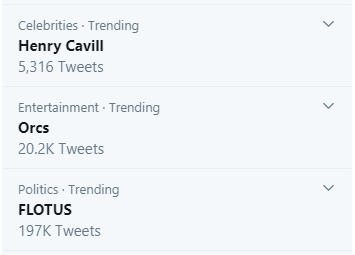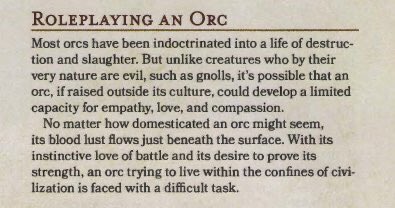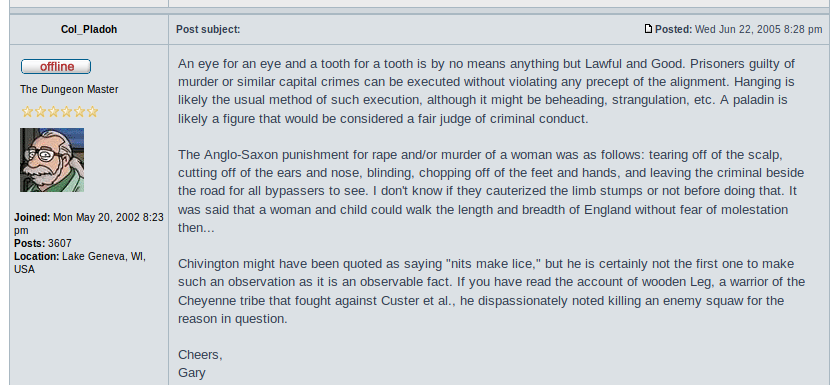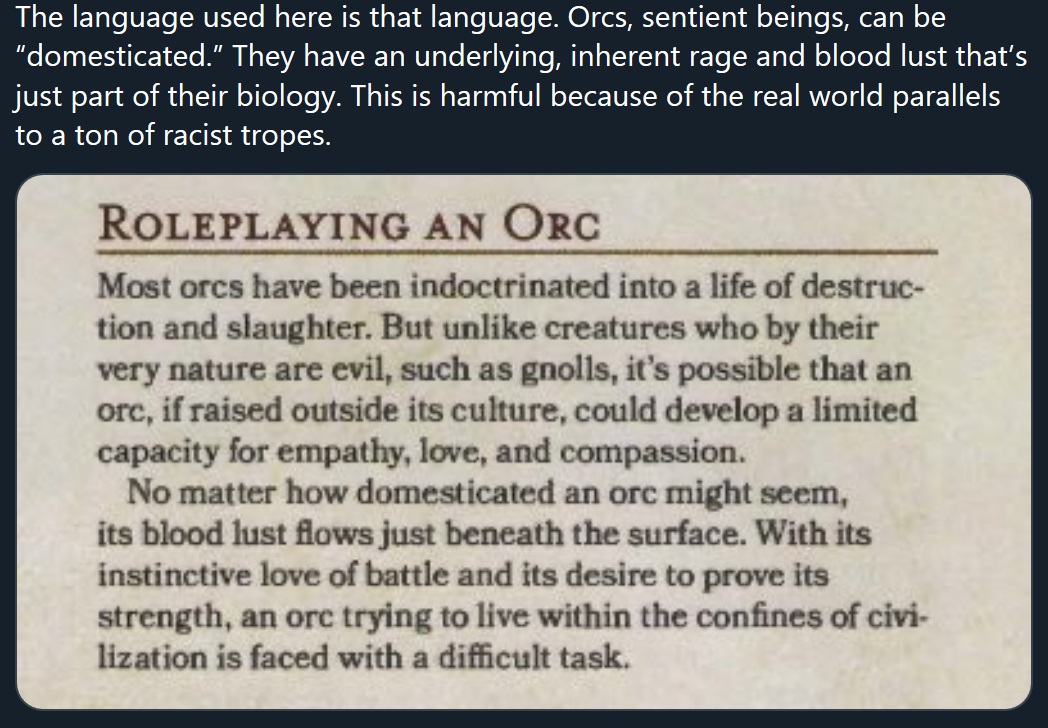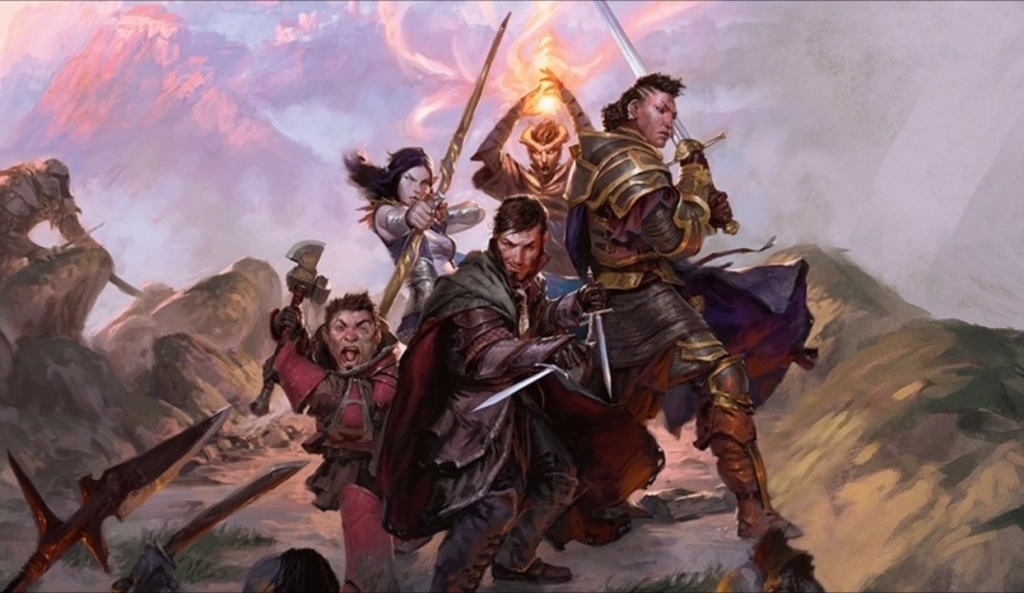D&D: Orcs Trend On Twitter And Controversy Followed
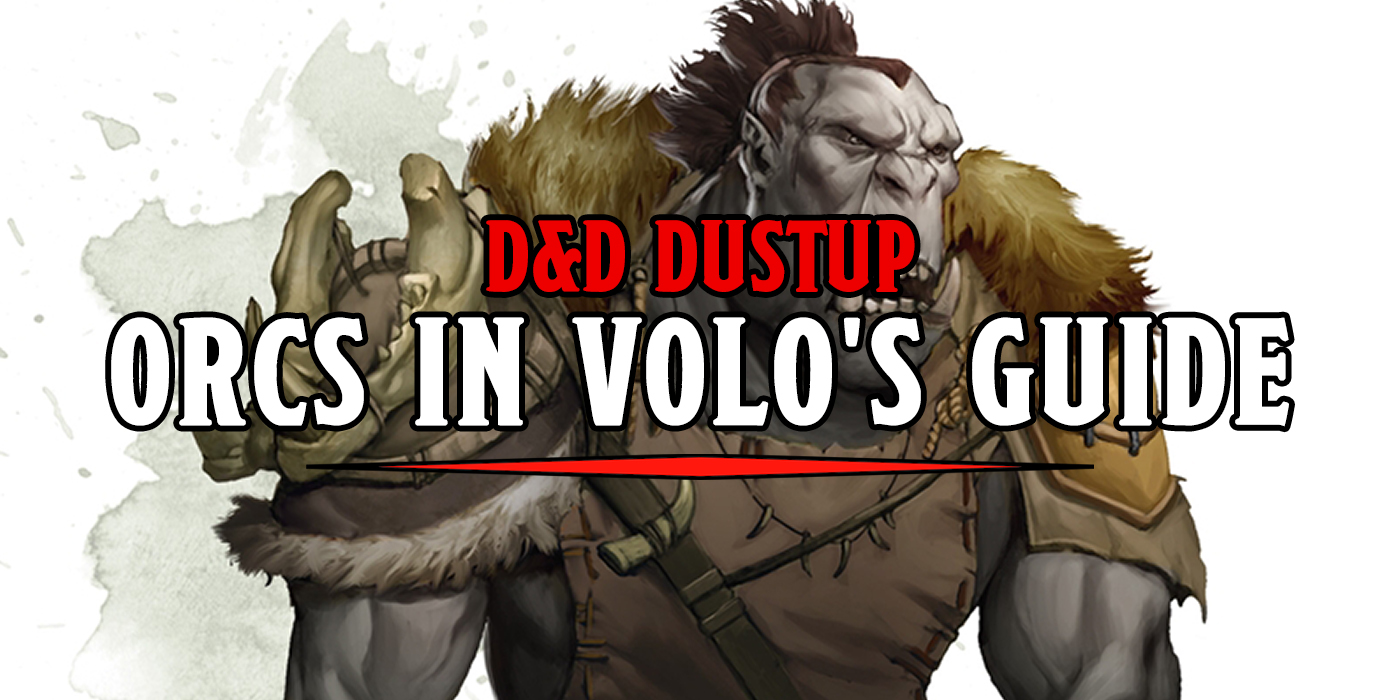

Orcs were trending along with Henry Cavill yesterday. But sadly the two trends are unrelated and he’s not painting up an army of boyz. Buckle up, folks.
You might look at the image below, see the trending tags, and wonder if everyone’s favorite Last Witcher of Krypton had taken up painting an army of Ork boyz after finishing his Custodes.
Sadly, we live in the worst timeline and all three of those trends are unrelated–and right now we’re here to talk about orcs, who were all the rage on Twitter yesterday, reaching more than 30K tweets before eventually being displaced by Madonna and Dennis Rodman. But don’t worry! The only thing they’ve caught is each other, apparently. No, when we say all the rage we mean, all the rage. There was a big dustup among the RPG community about orcs and whether or not there are racist tropes underscoring their writing kicked off by this particular passage from Volo’s Guide to Monsters.
As a reminder, Volo’s Guide to Monsters came out in 2016, continuing the trend of hiding problematic (at best) takes under the guise of fantasy adventure that’s been in D&D’s shadow since the beginning. But what else would you expect from a game created by a man who wrote this?
For context, he’s talking about mass murderer John Chivington in that quote, whose line about “nits make lice” was preceded by having claimed that he believed “it is right and honorable” to use any means to kill Native Americans, advocating for genocide and child murder. Which are definitely qualities you associate with the words “Paladin” and “Lawful” and “Good.” Sentiments like this are a big reason that alignment is basically a vestigial sac left flapping in the wind of D&D’s wake.
But as any vestigial sac left flapping in the wind, it’s bound to cause more problems. Which brings us to yesterday’s big argument, which centered around whether or not the way orcs are portrayed in D&D is racist. And if you need to be told that describing someone as “being able to develop a limited capacity for empathy, love, and compassion” upon being removed from your “brutal” culture borrows heavily from languaged used to oppress real-world cultures and diminish them so they’re not seen as “human” is racist, well. Consider yourself told.
That’s the crux of the argument, trying to get people to realize that this kind of language has correlations that cause real-world harm. This sort of conversation has come up before–in fact, at the end of last month folks suggested changing the way character creation worked and moving away from racial ability scores, which prompted a whole lot of arguing about racism and bioessentialism.
And if it sounds like we keep having the same conversation time after time, you’d be right. These points are from a similar thread back in 2019 when D&D Beyond ran an article about reimagining ability scores.
It’s not just orcs, either. Though if you’re here to argue that orcs/dwarves/whatever aren’t real–that isn’t the point. The language used to portray them borrows from very real and very harmful language. It’s not that they can’t be evil, or that you can’t have villains or bad guys in your RPG. But rather that this specific kind of portrayal is holding the game back. Here’s a thread from Ajey Pandey, writer of The Gods of New Braemar and BOLT RPG explaining things better than I can:
https://twitter.com/AjeyPandey/status/1254442473474199553
Changes like this help shift the game for the better. Making a change like this lets you cook up awesome characters that you can’t under the system.
Little by little it feels the conversation is changing. It’s not that the idea of orcs is racist, and nobody’s saying that anyone who uses orcs in their game is racist. But it’s clear from events like yesterday, where just arguing about orcs was enough to get the topic trending, that there’s still a ways to go. Still, let me leave you with this quote from James Introcaso, host of Don’t Split the Podcast, a writer and contributor on many fine D&D books.
This isn't to say there aren't evil orcs. There are. Just like there are evil humans! Monolithic thinking like this is bad and boring. There is a lot of racism baked into our fantasy. It's good to call it out and change it.
— James Introcaso (@JamesIntrocaso) April 26, 2020
Advertisement
Here’s hoping we can keep changing for the better.

